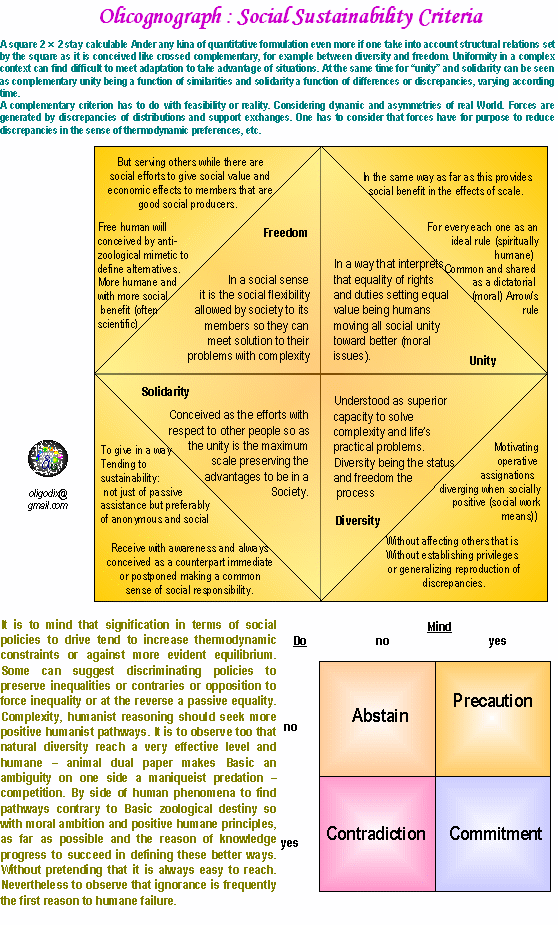Apply Humane Criteria Sustainability in your Practice
In the intricate mixture of reality there is the “hum-natural bias” to find principles everywhere and for everything this bias allows to imagination. Social in - experiment - able sciences evade the inconvenience of experimental demonstrations but often abuse the rigor of formalism to display authoritarian simplification of assumptions. Society turns into a world of manipulations. Lies look like very sophisticated, wise and elegant on one side but naive, sometimes innocent more often cynical on the other side.
Hard social games would not be wrong if freely accepted between pairs, including forms of compensation and fair competition. But still they should not exaggerate the gap between virtual (humans artifacts) and natural ecological systems and of their kinds of complexity since this releases anchors to reality. Hard to say that all and any junkies really play freely their addictive games so that the perfect mercantilist-capitalism business of drug traffic can go on.
Neither materialism nor utilitarianism alone are what make humans try to find other kinds of answers to questions. Freedom is especially this ability to say no to the best evidence of rational options and find other ways. This for good or bad reasons, like when searching for more explicit physical laws or when building some idea of social utility. This fundamental concern for doubt or delay in final assumptions also suggests flexibility and tolerance at the respect of quests facing complex issues of major vital concern.
. .
.
Parisi & Fon (2004) have stated the following propositions about incentive effects under the rule of Comparative Causation Under Negligence (prefer "top good disequilibrium" instead of equilibrium: Nature is a whole disequilibrium maintained) :
- In equilibrium, parties are never induced to take more than the due care
- Multiple equilibria in which one or both the parties take less than the due care are possible, i.e., in equilibrium, one or both the parties can be negligent.
- In some contexts, choice of due care by both the parties is also a possibility.
- Though there is an incentive to mitigate activity levels, each party’s activity level will be greater than the corresponding socially optimal level.
Follow...